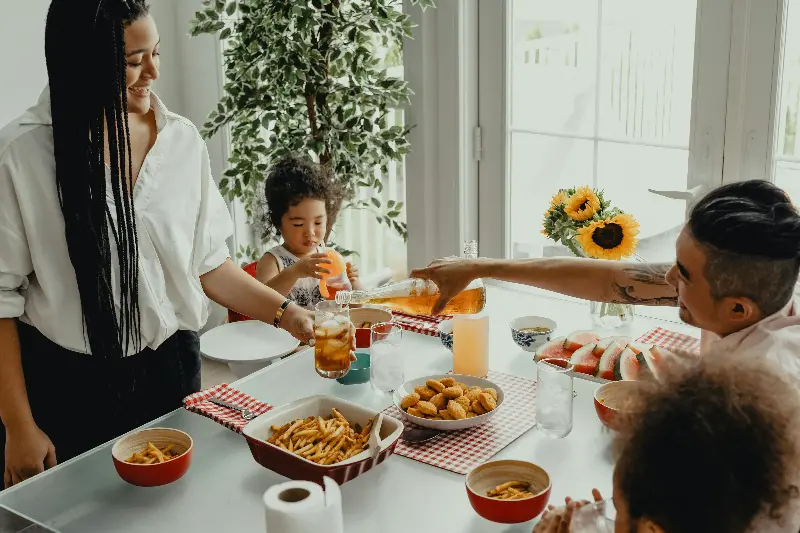
Family bonds and routines might sound simple, but they play a powerful role in shaping children’s mental strength around the globe. As families gather at dinner tables, share stories during bedtime, or stick to morning rituals before school, these seemingly everyday habits lay the foundation for a child’s emotional well-being and resilience. In every culture, the structure and warmth of family life form an invisible safety net that supports kids through life’s many challenges. Let’s dive into how these family traditions make a significant difference in mental health across continents and communities.
The Science Behind Family Connections
Decades of research reveal a surprising truth: children who experience close, supportive relationships with family members grow up with stronger coping skills. Experts link these family bonds to lower rates of anxiety and depression, higher self-esteem, and more effective stress management in children. Neuroscientists say that affectionate interactions, such as hugs, conversations, and shared laughter, help develop neural pathways related to emotional regulation.
For instance, a 2015 study published in the journal Child Development found that children with strong family ties were more likely to regulate their emotions, make friends more easily, and bounce back from setbacks. Dr. Catherine A. Sanderson, a professor of psychology, notes, “The security and predictability provided by family builds a child’s inner strength, making it easier for them to face new challenges.”
Rituals That Shape Resilience
Family routines—think bedtime stories, Sunday meals, or game nights—are more than just habits. They give children a sense of predictability and control in an ever-changing world. Across all continents, structured activities reduce anxiety, foster a sense of belonging, and reinforce values.
In Japan, the tradition of sharing meals known as “ie no shokuji” strengthens family communication and provides opportunities for emotional check-ins. Meanwhile, indigenous groups in Australia use ceremonial gatherings and storytelling as vital rituals to cement identity and collective support. Across the Americas, families who pray or meditate together often report stronger feelings of unity and comfort during tough times.
These rituals are powerful because they combine routine with affection. Children know what to expect, which helps minimize uncertainty—a major trigger for anxiety. The repeated positive interactions during these routines also create lasting memories, which kids draw upon in moments of stress.
Cultural Variety, Universal Impact
It’s fascinating to see how different cultures adapt family routines to fit their values, yet the outcome is strikingly similar: resilient children. In Scandinavian countries, the concept of “hygge” encourages simple, cozy moments together as a family. This ongoing closeness has been linked with high levels of happiness in children and adolescents.
In many African households, communal child-rearing practices mean that extended families create a network of support. This shared responsibility teaches children about empathy, cooperation, and reliance—skills that serve them for a lifetime. In Latin American cultures, the emphasis on “familismo,” or prioritizing family connections, has been shown to significantly improve adolescent mental health and buffer against peer pressure and social stress.
All these examples highlight a core truth: it’s not the exact routine, but the presence of care and structure that counts. Whether it’s singing together in the evenings in India or walking to school in Kenya, the magic happens when routines are filled with attention, patience, and love.
Facing Modern Challenges Together
Of course, families today face many obstacles—hectic schedules, technology, economic stress, and shifting structures. Yet, even amid these modern changes, maintaining simple routines and strong family bonds can make all the difference. Studies show that families who regularly disconnect from screens to share meals or talk about their day see lower levels of behavioral problems and higher academic achievement.
Single-parent families, blended households, and families living far from their native countries all report similar benefits when they find their own unique routines. A study by the American Psychological Association found that it’s the quality of family time, not the quantity, that builds resilience. Even quick check-ins, shared jokes, or a brief chat before bed help children feel valued and understood.
Parents don’t need to aim for perfection. It’s not about arranging magazine-worthy moments or strict schedules. The key is consistency, warmth, and genuine interest in each other’s lives. Children thrive when they sense that their family is a reliable anchor, regardless of circumstances.

Building Lasting Mental Strength Around the World
While cultures and customs may differ, the building blocks of mental strength in children share remarkable similarities worldwide. Loving bonds, intentional routines, and opportunities to connect are universal ingredients for nurturing healthy, resilient kids.
In an age of uncertainty and rapid change, these old-fashioned elements of family life remain more relevant than ever. The next time you gather for a family meal, take a walk together, or share a story before bed, remember: you’re not just creating memories. You’re gifting children the confidence and mental strength that will guide them for years to come.
Family bonds and routines are the world’s most effective—and heartwarming—recipe for raising strong, adaptable children. Every moment spent together, no matter how ordinary it may seem, adds up to extraordinary strength for the future.
